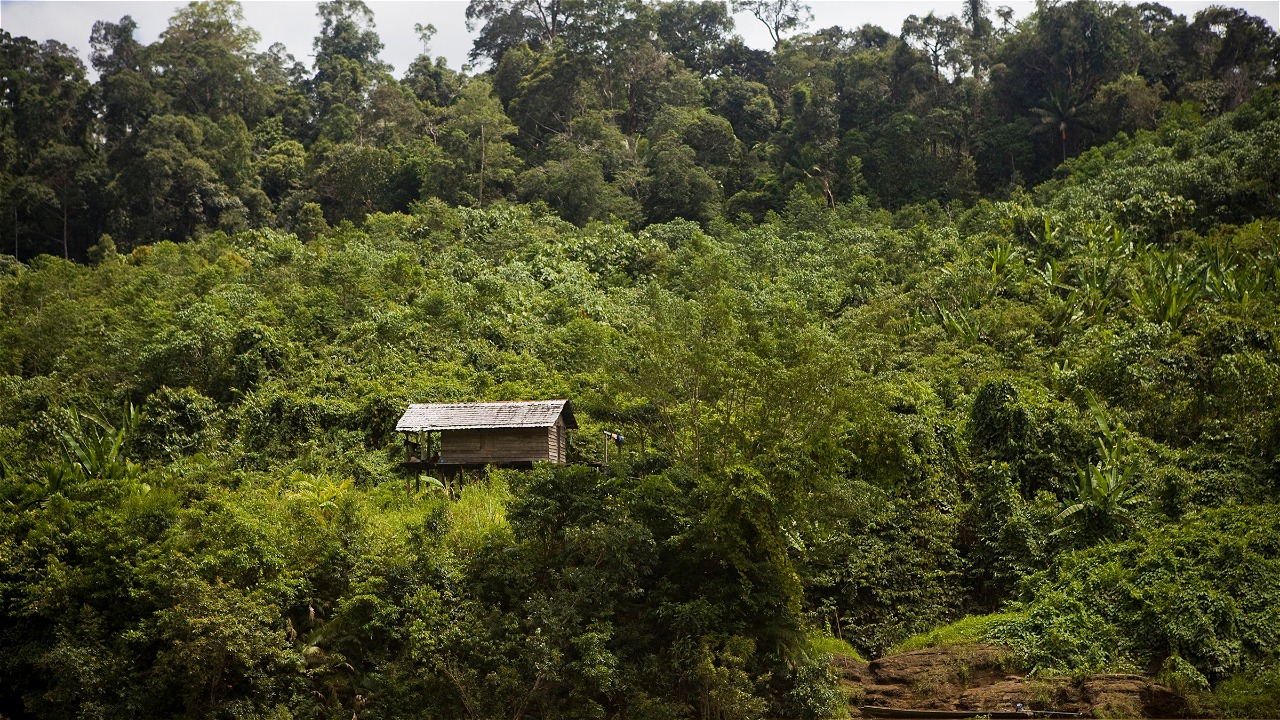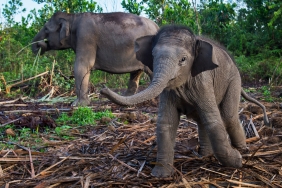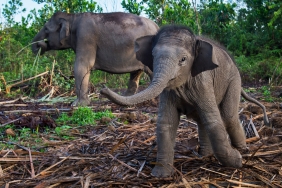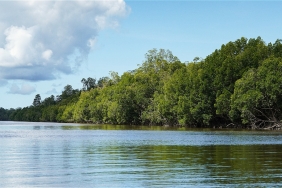INVESTING IN NATURAL RESOURCES: PARTNERSHIPS, POLICY AND INVESTMENT
Natural resources were a key theme in the Rio+20 summit how-to agenda, organized by WWF and three international banks, the African & Asian Development Banks and the Inter-American Development Bank. Speakers discussed the importance of natural resources in supporting a green economy and sustainable development, and the critical role of partnerships in the process.
Minister Kuntoro Mangusubroto, Head of the Indonesian Presidential Working Unit for Development Monitoring and Control, spoke about natural resources and the Heart of Borneo (HoB), and the activities undertaken by the Indonesian Government in the protection of forests, biodiversity and community welfare in Indonesia.
He said that back in 2011, Central Kalimantan Province, located on the island of Borneo, had been selected to be a pilot province to carry out a number of activities classified as green economy initiatives. Central Kalimantan is the third most forested province in Indonesia with extensive peatlands and rich biodiversity. There are at least six REDD+ projects underway on peatlands and others focusing on Central Kalimantan's forests, including internationally recognized forests within the HoB Initiative.
Elements of success
Mr. Kuntoro shared two principle elements of the program's success with delegates. The first is local government involvement - providing a strong foundation for ownership and sustainability of inputs.
"Indonesia is still a young decentralized democracy. Authority is not in the hands of the central government, but in the hands of local leaders. We are working with the Central Kalimantan Regional Government to create a regional strategy on REDD+. We understand that the old paradigm of the central government feeding the regions no longer applies. So we empower the people of Central Kalimantan to write so that they actually have the strategy," he said.
The second is that the elements are always practical and really drive impact.
"At the end of the day, what's most important to me is decreased deforestation and increased prosperity of local and ethnic communities. Initiated by the Governor, we are now beginning to double down on initiatives that focus on actions on the ground. For example, peatland rehabilitation and mapping the rights of ethnic communities," he continued.
Mr. Kuntoro said that in particular these two elements are what will continue to give birth to the 'Green Economic Corridor in the Heart of Borneo' initiatives, a prime example of how the world should manage their natural resources.
Heart of Borneo (HoB)
Beginning as a voluntary agreement between neighboring countries back in 2007 (the HoB Declaration), the HoB Initiative promotes a functioning framework for cross-border cooperation in a number of key areas - the establishment of protected areas, sustainable management of natural resources, ecotourism development and capacity building.
Mr. Kuntoro said that in addition to this, there has been widespread partner-state and international support stemming from the HoB Initiative.
One example dates back to August 2011, when Mr. Kuntoro's unit launched the initial Borneo Green Economic Corridor project with UNEP support, in partnership with a number of organizations, including WWF.
"The unit's forward-looking project intends to analyze and develop options to ensure the support of economic growth and the enhancement of natural and human resources across Kalimantan, and the initial results of this study are very encouraging," he said.
Mr. Kuntoro noted that at the national level, green thinking is slowly but surely making an impact on the national development planning process. In January 2012, President SBY issued a Presidential Regulation establishing a new spatial plan for Kalimantan Island. This regulation sets out a vision to achieve the conservation of 45% of Kalimantan's forests, highlighting the area as Indonesia's commitment to the "lungs of the world".
"The Heart of Borneo has been identified as a new National Strategy Area, Indonesia's first center for natural resource value," Mr. Kuntoro said proudly.
More broadly, through similar but differentiated programs, the three countries, Brunei Darussalam, Indonesia, Malaysia, and their partners have begun to deliver endless conservation and sustainable development through green economy approaches.
"Embedding the values of ecosystems, biodiversity and water flow services, is central to generating sustainable growth and prosperity at local, national and regional levels along the HoB," he continued.





